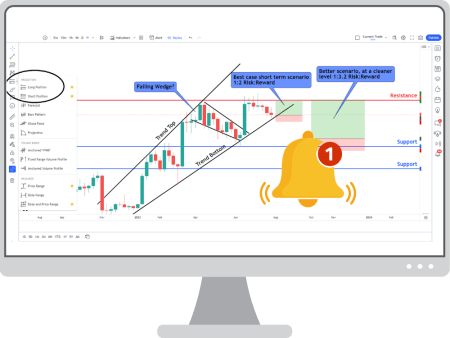
tldr: You need to know your net worth because you are forced to face the truth about your financial situation in plain black and white.
Lets talk about this more
Most people know things like their credit score or how much debt they have, but why do you need to know your net worth? You’ve probably seen it on socials like IG where influencers share catchy images of their success. There is a good reason for this. Your net worth is an accurate measure of your overall financial health. It can give you a better idea of where you stand and also help you mentally wrap your head around things.
Here’s why it’s important to track your net worth and how you can do it
Your net worth is the difference between the value of your assets and liabilities. In simple terms, net worth is the sum of your assets less the sum of your liabilities. If your assets are greater than your liabilities, your net worth is positive. In contrast, you have a negative net worth if your liabilities exceed your assets.
You can see the result of all of your previous income and expenses. More importantly, the results of your decisions and habits. While this number is useful, it can be a wake-up call if your finances are seriously off track. Alternatively a “job well done” compliment if you are succeeding. Tracking your net worth over time provides a more insightful picture of your finances.
Your net worth can be thought of as a financial report card. When computed regularly, can help you assess your present financial situation. It also helps to determine what you need to do to achieve your financial objectives.
Net Worth
An asset is anything you own that has value and can be sold for money. Investments, bank and brokerage accounts, retirement savings, real estate, and personal property (such as cars, jewelry, and collectibles) are a few examples. There’s also, of course, cash. Your debts, such as loans, mortgages, credit card debt, medical expenses, and personal loans, are represented by your liabilities. Your net worth is the difference of the value of your assets and liabilities.
Putting precise numbers on all of your assets isn’t easy. Be conservative if possible to ensure you don’t overinflate things.
What Does It Mean?
Your net worth reveals things about yourself – maybe things you didn’t even know. A positive result is of course the goal. A negative result may mean you need to get back on track.
Your net worth will change over time, just like a financial market. An uptrend is what we want to see.
The notion of an ideal net worth is not really able to be calculated. Everyone is different. You know your own goals.
Why It Matters What Your Net Worth Is
You are forced to face the truth about your financial situation when you can observe financial trends. Especially if your net worth statements are in plain black and white. You can learn where you are and where you want to be through this exercise. If you are reducing your debt while expanding your assets, for example, this might motivate you. If not, it can serve as a wake-up call if you are not on pace.
To get back on track, consider doing the following
Mindful Spending
- Just because you have cash, doesn’t mean you need to spend it. (bombshell, I know).
- If you can’t afford it, don’t buy it.
- Determine needs vs wants and practice delayed gratification.
Pay Down Debt
- Create a debt reduction strategy and stick to it
- Become obsessed with being debt free
- Tackle debts in a way that makes sense to you, such as highest interest first or lowest balance first etc.
- Consider debt consolidation if it helps manage repayments and reduces interest rates
Save and Invest
- Spend less than you make and save and invest the difference
- Make investing a standard part of your banking cycle
- Prioritize investing over spending
- Save an emergency account for unforeseen issues
Key Takeaways
- Your net worth is the difference between the value of your assets and the value of your liabilities, or what you have vs what you owe.
- Investments, bank and brokerage accounts, retirement savings, real estate, and possessions like jewelry and a car are all examples of assets in this case. (Robert Kiyosaki might not call all of them assets, but if you can sell them, its arguable)
- Your mortgage, loans, credit card debt, loan debt, and any other debt are all considered liabilities.
- Whatever your financial circumstances, understanding your net worth will help you assess your present financial state and make future plans. Just face it.
- Your net worth will fluctuate, but the overall trend should be positive on a macro scale.
- Knowing your financial situation will help you control your spending, be better equipped to make wise choices regarding your money, and increase your chances of achieving both your short and long-term financial objectives.





Leave a Reply